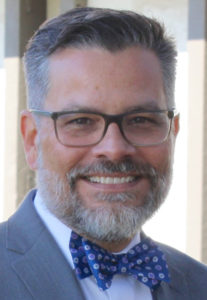Erik Larson released a remarkable book earlier this year, The Splendid and the Vile, detailing the extremely complicated, interesting and inspiring relationship between Winston Churchill and Franklin Roosevelt.
 Churchill and Roosevelt developed a unique friendship over time, both products of their own countries but sharing a common mission to bolster democracy and stop the spread of fascism across Europe.
Churchill and Roosevelt developed a unique friendship over time, both products of their own countries but sharing a common mission to bolster democracy and stop the spread of fascism across Europe.
After the end of World War II, their relationship often was hailed as “the bond” that saved the world. Utilizing executive maneuvers and personal correspondence, the two great leaders managed and orchestrated a war plan that assured an allied victory and hope for future generations.
While Churchill and Roosevelt faced an evil the likes the world had not seen in the modern era, the echoes of fascism, totalitarianism and authoritarianism are once again gaining their voices across the world.
Religious zealots are lending their voices to these efforts, attempting to meld the message of nationalistic power with the gospel of Jesus Christ. Church leaders falling for the seduction of power and wealth need to be called out and an alternative message voiced.
However, history teaches we cannot go it alone. Good people and organizations do not have the wealth or power to combat such a well-funded and dominating force. Therefore, we must depend on strategic collaboration.
Good Faith Media constantly looks for strategic partners to advance the cause of an inclusive faith committed to freedom and justice. Organizations like Baptist News Global, BJC and Cooperative Baptist Fellowship collaborate for the purpose of staying true to conscience while upholding a biblical social justice.
Collaboration between free and faithful Christians committed to social justice is an essential strategy for a hopeful future. To ensure a faith focused on love, inclusivity, diversity, freedom and justice, free and faithful Christians need to work together in strategic ways sharpening their expertise and relying on the expertise of others.
For collaboration to be successful and impactful, organizations need to remember and follow several factors:
First, more voices are stronger than one. For too long, progressive and moderate faith-based organizations and institutions operated within the realm of free-market capitalism. The results induced competition, pitting friendly colleagues against each other. Instead of collaboration, the marketplace turned organizations against one another.
“More than any other movement within the last 50 years, the Religious Right understood and operated under the strategy that more voices are stronger than one.”
In turn, this led organizations to operate and vocalize separate from each other. Thankfully, however, a new day is dawning. More than any other movement within the last 50 years, the Religious Right understood and operated under the strategy that more voices are stronger than one. While they maintained their individual organizations and missions, they collaborated to promote and implement rigid ideals upon the church and world.
If moderates and progressives want to vocalize our message more strategically and effectively, then we need to learn from our past failures. Even the most righteous voices that sing alone are drowned out by a chorus of wrongdoers. We need to collaborate to join our strengths and produce a united message that can be heard over the loud voices spewing misguided and misappropriated theology.
 Collaborations like the one currently undertaken by Baptist News Global, BJC and Good Faith Media will be a model for the future. Our Faith Freedom 2020 project utilizes the strength of each organization, bringing to light important information regarding religious liberty and race within this election cycle. Our three voices joined together create a strong voice.
Collaborations like the one currently undertaken by Baptist News Global, BJC and Good Faith Media will be a model for the future. Our Faith Freedom 2020 project utilizes the strength of each organization, bringing to light important information regarding religious liberty and race within this election cycle. Our three voices joined together create a strong voice.
Second, lean into your strengths. While faith-based companies are diverse organizations offering multiple services, there is always one or two offerings they excel in providing. Many organizations get into trouble diversifying too soon and too much, moving away from their strengths in order to “compete” in the marketplace.
Strategic collaborative ventures can assist organizations in leaning into their strengths in order to be more successful. In the progressive to moderate Christian ecosystems, we have a variety of organizations and institutions that excel in their stated ventures and ministries. We need to leverage those strengths in order to bolster our messaging and empower our mission.
For example, I’m writing this column on a MacBook Pro. However, if I were to lift the hood, I would discover a variety of parts made by different companies. Apple has done a marvelous job marketing their hardware as one product, but the fact of the matter remains it takes parts from a variety of companies to make a Mac.
Similarly, free and faithful Christians need to do a better job in collaborating in our efforts to advocate and communicate. Personally, I believe our message resides on the right side of history. However, we have been drowned out by a well-concerted effort from religious zealots. Utilizing our strengths will empower our message and free us to follow our passions in strategic and collaborative ways.
Third, learn to trust other organizations’ strengths. For genuine collaboration to be achieved, we must learn to trust other organizations. Trust is not something that is granted easily but must be earned over time. Trust is the notion that when faced with adversity, there will be other organizations willing to stand beside you.
Achievement of trust comes through the fostering of relationships. As I scan the landscape of free and faithful Christians, I am thankful to see organizations I trust. This trust has developed over nearly three decades of ministry and experience, walking beside some wonderful and brave people willing to be both prophetic and priestly on critical issues.
As our culture continues to develop complex, difficult and potentially divisive issues, Good Faith Media feels assured and confident in collaborating with partners like Baptist News Global and its executive director and publisher, Mark Wingfield. We all need friends in this world, friends willing to offer support and encouragement during perilous times.
“We are part of a network shining light into darkness.”
Fourth, movements are larger than one organization. As much as I love Good Faith Media and support our work, I would be remiss not to recognize and applaud the work of other organizations. Organizations do not exist within a vacuum; we are part of a network shining light into darkness. When we combine our efforts, the light grows in intensity, exposing injustices and revealing just pathways forward.
BNG provides insightful columns each week on issues that matter to Baptists. The Cooperative Baptist Fellowship, New Baptist Covenant, American Baptist Churches in the USA, Alliance of Baptists, Progressive National Baptists, National Baptist Convention USA, and many more do such a great job of advocating for social justice causes. The Baptist world is filled with some remarkable organizations engaged in incredible work.
Therefore, we need to seek ways to utilize each other’s strengths and share resources for the advancement of a cause greater than our own. To advance the common good for all God’s children, we must work together in strategic and collaborative ways.
Jesus described this kind of community collaboration as the “kingdom of God.” Kingdom of God collaboration plants mustard seeds, inserts leaven into bread and comforts the poor. It’s a combination of Jesus followers working together for the cause of the gospel. Good news brings freedom, hope, reconciliation and justice.
As organizations like BNG and Good Faith Media work together in advancing our missions, we do so understanding we are part of a larger family known as the kingdom of God. Thus, we commit ourselves to boldly walking forward together offering honesty, revelation, opportunities and hope for future generations of good faith people.
Editor’s note: BNG, Good Faith Media and BJC have created a strategic partnership for the balance of 2020, focusing on the intersection of religious freedom, race, the pandemic and the election. Learn more at the Faith Freedom 2020 website.
Mitch Randall is chief executive officer of Good Faith Media, a new nonprofit launched July 1 in a merger of Baptist Center for Ethics and Baptists Today/Nurturing Faith. He previously served as executive director of Baptist Center for Ethics and was the founding pastor at NorthHaven Baptist Church in Norman, Okla.
